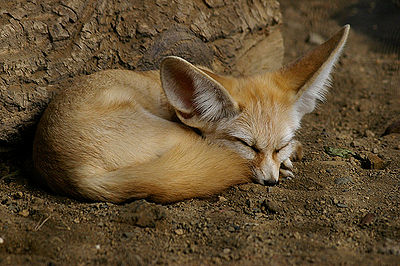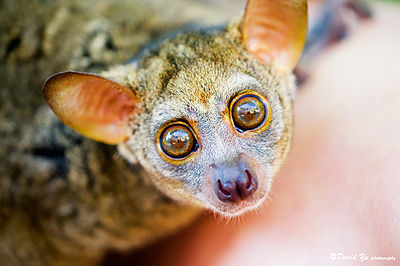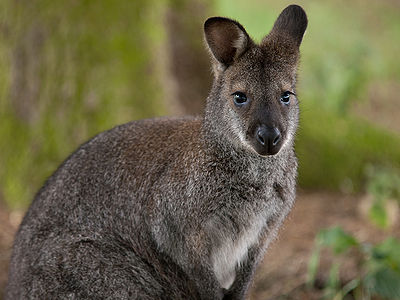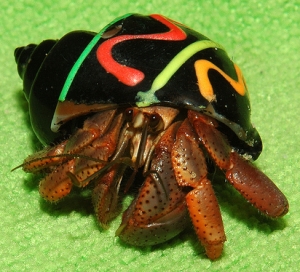
The Fennec Fox is a small canine, also known as the desert fox. Before considering this fox as a pet, you must check with local authorities to make sure it’s legal to own this type of pet where you live.
Fennec Foxes can be tame if they are hand-raised. With the proper socialization, they can become pets.
A Fennec Fox’s outstanding feature is its enormous erect ears. The fox is otherwise small, weighing from 2-3 1/2 pounds. Their coat is thick, short and soft. Colors are red or tawny with black markings on the back and tail. The belly is white.
In the wild, the Fennec Fox is active at night although it can be trained to adjust to the hours a human keeps. They can be litter-trained, some more easily than others.
Fennecs are omnivores and living in the wild their diet consists of rodents, insects, lizards, plants and fruit. A good home diet would be raw meat and veggies plus a vitamin supplement. They will eat commercial dog food with the addition of fruits and veggies.
Fennec foxes have personalities similar to dogs. They are playful and full of energy. However they will bite if they feel threatened. They seem to get along with other pets – dogs and cats – but care should be taken with smaller pets as they may be considered food. Fennecs are usually friendly, even with strangers.
A Fennec Fox needs a very secure fence with a top that prevents them from climbing out. There are cat fences that are made with the top bent inwards to avoid this problem. The fence should also be deep in the ground with no gaps as Fennecs are diggers. They will attempt to dig their way out. They can live outdoors but must have adequate shelter against the elements.
Fennecs can be leash-trained and should always be walked on leash outside of the yard. Their energy and speed makes it very difficult to get them back if they run off.
If you decide to adopt a Fennec, it’s important to have a veterinarian who will treat them. Medical care is similar to that of a dog.
If you are thinking of acquiring a Fennec Fox as a pet, keep in mind that they are not totally domesticated. Do your research as they need an owner who is knowledgeable about them and capable of caring for them.



